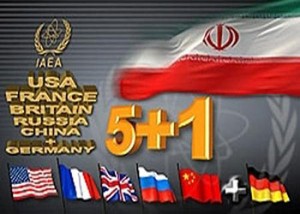 TEHRAN (FNA)- The recent interim agreement signed by Iran and the six world powers in Geneva gives the US the chance to start strategic cooperation with Iran in the near future, New York Times said in an article.
TEHRAN (FNA)- The recent interim agreement signed by Iran and the six world powers in Geneva gives the US the chance to start strategic cooperation with Iran in the near future, New York Times said in an article.�The recent nuclear deal with Iran has caused a predictable furor among Middle East hawks. But it offers an opportunity for a much bigger breakthrough, rapprochement and,�eventually, even strategic cooperation with Iran,� David Patrikarakos said in a New York Times article.
He said that for the last 30 years, the US-Iran relations were stuck in a �cycle of suspicion and mistrust� and now America should change its Middle East policy and transform its enmity towards Iran to alliance.
It�s not an action that could be done over a night, but in the long term it could be in favor of the US interests.
�There are many benefits. Iran, which sits between the Caspian Sea and the Persian Gulf, can check Chinese access to critical energy sources, while acting as a buffer against an ever-truculent Russia. It also affects events in Lebanon, through its ties with Hezbollah, and in Israel and the Palestinian territories, through its ties with Hamas. And there won�t be a solution to Syria�s civil war without it,� Patrikarakos said.
He added that despite the severe enmity, America and Iran have some common grounds for cooperation as they did in Afghanistan and fighting against the Taliban. Iran can provide the US with intelligence and information for fighting Al-Qaeda.
He said that at first, this approachment can �horrify� the United States' old allies such as Saudi Arabia, but that doesn't matter.
�The United States built its ties with the Saudis on a need for oil that no longer exists to the same degree; the relationship is artificial and anachronistic,� Patrikarakos stated.
�New fracking technologies have made America the biggest producer of hydrocarbons and non-OPEC exports in the world, while Canadian, South America and African sources are becoming increasingly plentiful. The Saudis still influence oil markets but they can no longer shock the global economy as they did with the 1973 oil embargo. Unlike Iran, Saudi Arabia has little to offer besides oil; it doesn�t have a democratic tradition and its financing of Wahhabi Islam has seriously damaged American interests across the world,� the article said.
Finally he said that both US President Barack Obama and Iranian President Hassan Rouhani should do their best for normalizing the relations.
�The 21st-century Middle East is a new and dangerous place. To lead the region into a better future, Washington must adapt and leave old enmities behind,� he said.
By Fars News Agency�
The Iran Project is not responsible for the content of quoted articles.










